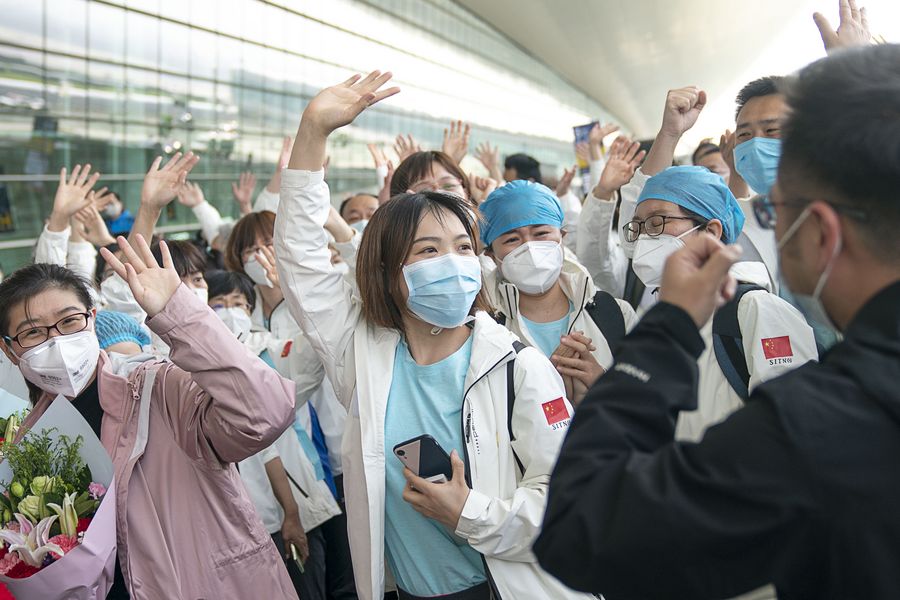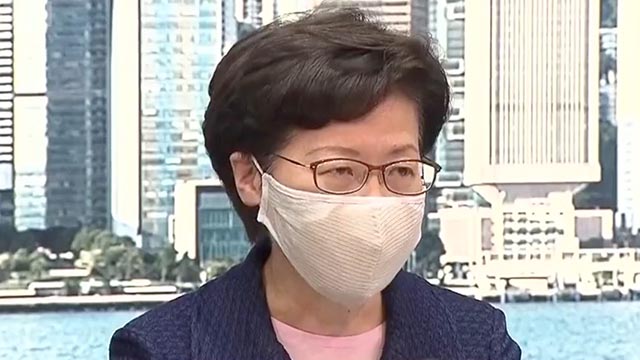"There are things I think we should never learn from the United States, such as obsession with global dominance," Chinese Ambassador to the United States Cui Tiankai said during an online interview on August 4.
Read more:
Full text: Cui Tiankai's interview at the 2020 Aspen Security Forum
Cui made the remarks at the 2020 Aspen Security Forum during an online interview with Nicholas Burns, executive director of the Aspen Strategy Group, and Andrea Mitchell, chief foreign affairs correspondent for NBC News, on issues related to China-U.S. relations.
Noting the benefits for both sides to cooperate with each other, the ambassador said cooperation rather than confrontation "is the choice we have to make."
However, Cui noted there seems to be an "obsession" with global dominance in the U.S. because it is talked about so often in the country.
China, on the other hand, has no intention to seek global dominance, Cui said.
Meanwhile, the diplomat answered questions related to COVID-19, the national security law for Hong Kong, the Xinjiang issue and other issues that have dominated headlines recently.

Medics from north China's Tianjin Municipality wave goodbye before their departure in Wuhan, central China's Hubei Province, March 17, 2020. /Xinhua
Medics from north China's Tianjin Municipality wave goodbye before their departure in Wuhan, central China's Hubei Province, March 17, 2020. /Xinhua
COVID-19 allegations: Where is the evidence?
In response to U.S. President Donald Trump's accusation that China didn't alert the World Health Organization (WHO) soon enough to the human-to-human transmission of COVID-19, Cui presented the fact that China was one of the countries to first report such cases.
"The fact is very clear. The timeline is very clear," he underlined.
"We identified a few cases in Wuhan in late December last year," Cui said. "Very few people, I think nobody in the world knew anything about the new virus. But as soon as we had these cases, we reported to the WHO."
Read more:
White Paper 'Fighting COVID-19: China in Action': China's transparency on COVID-19
China's Foreign Ministry: 24 lies coming out of U.S. over COVID-19
More recently, the U.S. has filed charges against a number of researchers and academics for allegedly trying to steal COVID-19 vaccine information from U.S. technology companies or universities. Cui said the U.S. side made such allegations "without giving any hard evidence."
If people want to make allegations, they have to show evidence, the diplomat rebutted. "It's quite possible that hackers from other countries are trying to infiltrate or attack China's research institutions. This is also possible."
00:51

Epidemic is the reason behind delayed HK election
The decision to delay the election in Hong Kong was made by the Hong Kong SAR government, and the reason is the epidemic, Cui explained.
"Because in recent days, people see a significant resurgence of the confirmed cases. This is very alarming," Cui said. "The Hong Kong SAR government decided that if the election goes as planned, the risk, the danger of the pandemic spreading even wider will be very serious. Actually in other parts of the world, maybe dozens of countries or regions have decided to somehow postpone their elections or events like this."
Read more:
One month in: How the national security law for HKSAR has developed
Central government to help HK curb COVID-19 surge
National security law for HKSAR needed to stop violence
"We were forced to enact this law, so the rising violence in Hong Kong could be stopped," Cui said, reiterating the meaning behind the law.
Cui said the law allows people to live in a safer environment while allowing Hong Kong to continue to be an international financial and transportation center. And the system, the policy of "One Country, Two Systems," will continue, Cui briefed.
Over 2 million are held in Xinjiang detention camps? It's fabricated
When asked to comment on the situation with the Uygurs, Cui called data claiming more than 2 million people are being held in detention camps "fabricated."
"This is not United Nations (UN) figure. This figure is fabricated by somebody else, certainly not the United Nations," Cui said, adding they have invited, over the past few years, UN officials, foreign diplomats and journalists to Xinjiang, and none of them supported such claims.
Read more:
China vows to hit back if U.S. insists on interfering in China's internal affairs
Another sanction on China's Xinjiang: U.S. lashes out as it loses itself
The people in Xinjiang, no matter which ethnic group they belong to, were threatened by rising terrorist and extremist activities. Due to the measures taken over the last few years, "there has been no terrorist attack in Xinjiang," Cui said.
"People are living in a much safer environment. People can really enjoy good life. This is happening to all the people there without any distinction between the ethnic groups."
(Cover: Flags of the United States and China. /Reuters)